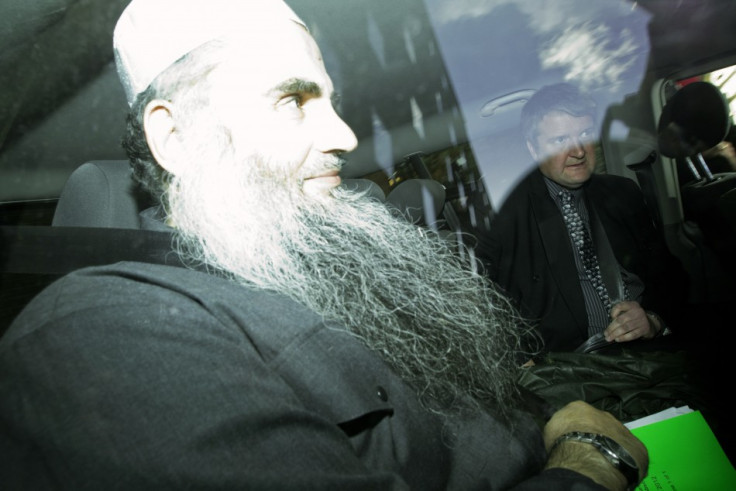Abu Qatada's Deportation Blocked After 'Home Office Blunder'

Abu Qatada's deportation to Jordan has been put on hold after the European Court of Human Rights said it had received an 11<sup>th hour appeal from his lawyers.
The Home Office believed the three-month deadline for Qatada to appeal the decision had run out on midnight on Monday and he was arrested at his home the following day.
However, the radical cleric's lawyers launched an appeal as they believed the deadline actually passed on midnight on Tuesday.
The latest appeal could pave the way for a lengthy dispute and allow Qatada's lawyers to argue for him to be released on bail again.
The Home Office originally stated Qatada would be deported on or around 30 April.
A spokeswoman for the European Court of Human Rights in Strasbourg confirmed to the Guardian that they believed the deadline was midnight on Tuesday, rather than midnight on Monday as understood by the Home Office
The court's Grand Chamber will decide whether to hear Qatada's appeal. Until then, the radical cleric, who a judge once described as Osama bin Laden's right-hand man in Europe, cannot be deported from Britain to Jordan.
The move is separate from any appeal Qatada's lawyers may lodge against Home Secretary Theresa May's decision to continue with his deportation after receiving assurance that any evidence gained through torture would not be used against him.
When the 11th hour appeal was revealed, the Home Office denied it had made a mistake regarding the deadline.
A Home Office spokesman said: "Qatada has no right to refer the case to the Grand Chamber of the European Court of Human Rights, since the three-month deadline to do so lapsed at midnight on Monday night.
"His case should be heard in British courts, as the Home Secretary outlined to Parliament yesterday. In the meantime, he remains in custody."
Qatada, 51, faces charges of plotting bomb attacks in Jordan in 1999 and 2000. Authorities have been attempting to deport Qatada, a leading al-Qaida figure in Europe, since 2005, claiming he poses a risk to national security.
© Copyright IBTimes 2024. All rights reserved.






